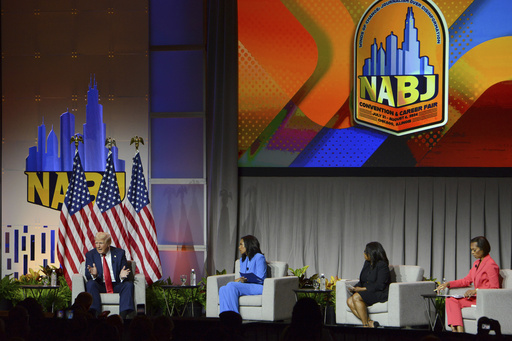After a heated interview involving former President Donald Trump at the National Association of Black Journalists conference, the organization resumed its regular activities with thousands of journalists engaging with recruiters and attending panel discussions. However, discussions lingered on the tension sparked by Trump’s false claims about Vice President Kamala Harris’ race and his disrespectful remarks towards a journalist who questioned him about his past attacks on the Black community.
Fred Sweets, a longstanding member, reflected on the age-old question faced by Black journalists: whether to prioritize their race or their role as journalists. He expressed that while Trump generated news with his interview, the situation raised concerns within the organization.
DeWayne Wickham, a retired USA Today columnist and a founding member of NABJ, criticized Trump’s motives for attending the event, suggesting that he aimed to rally his base rather than engage with the Black American community present at the conference. Wickham emphasized the historical significance of NABJ, established in 1975 as a response to the lack of diversity in media following the Kerner Commission report in 1968.
The organization, founded out of necessity for Black journalists to unite and address common challenges in newsrooms, has a history of inviting presidential candidates to engage with its members. Past presidents, nominees, and controversial figures, such as Louis Farrakhan, have participated in NABJ events, sparking discussions and debates within the community.
While Trump’s interview stirred debate and controversy among attendees, including high school journalist Marcus Craig, who attended his first convention to network, the core mission of NABJ remained unchanged. Craig emphasized the importance of allowing candidates to present themselves and be scrutinized by journalists, underscoring the convention’s role in facilitating dialogue and critical engagement.
Despite occasional controversies surrounding speakers at NABJ events over the years, Wickham highlighted the organization’s enduring commitment to providing a platform for diverse voices within Black America. He likened it to a family gathering where various perspectives and voices are welcomed, even if they may spark disagreement.


